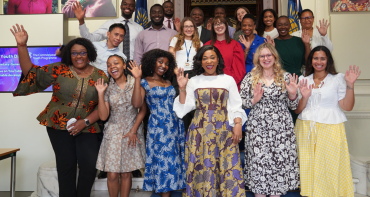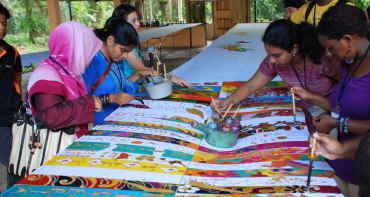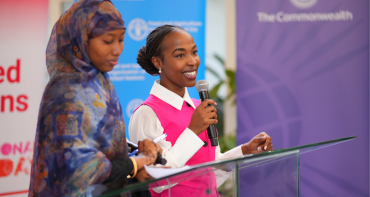By Cynthia Nyongesa, Assistant Research Officer at the ĚÇĐÄĚ˝»¨â€™s Rule of Law Section
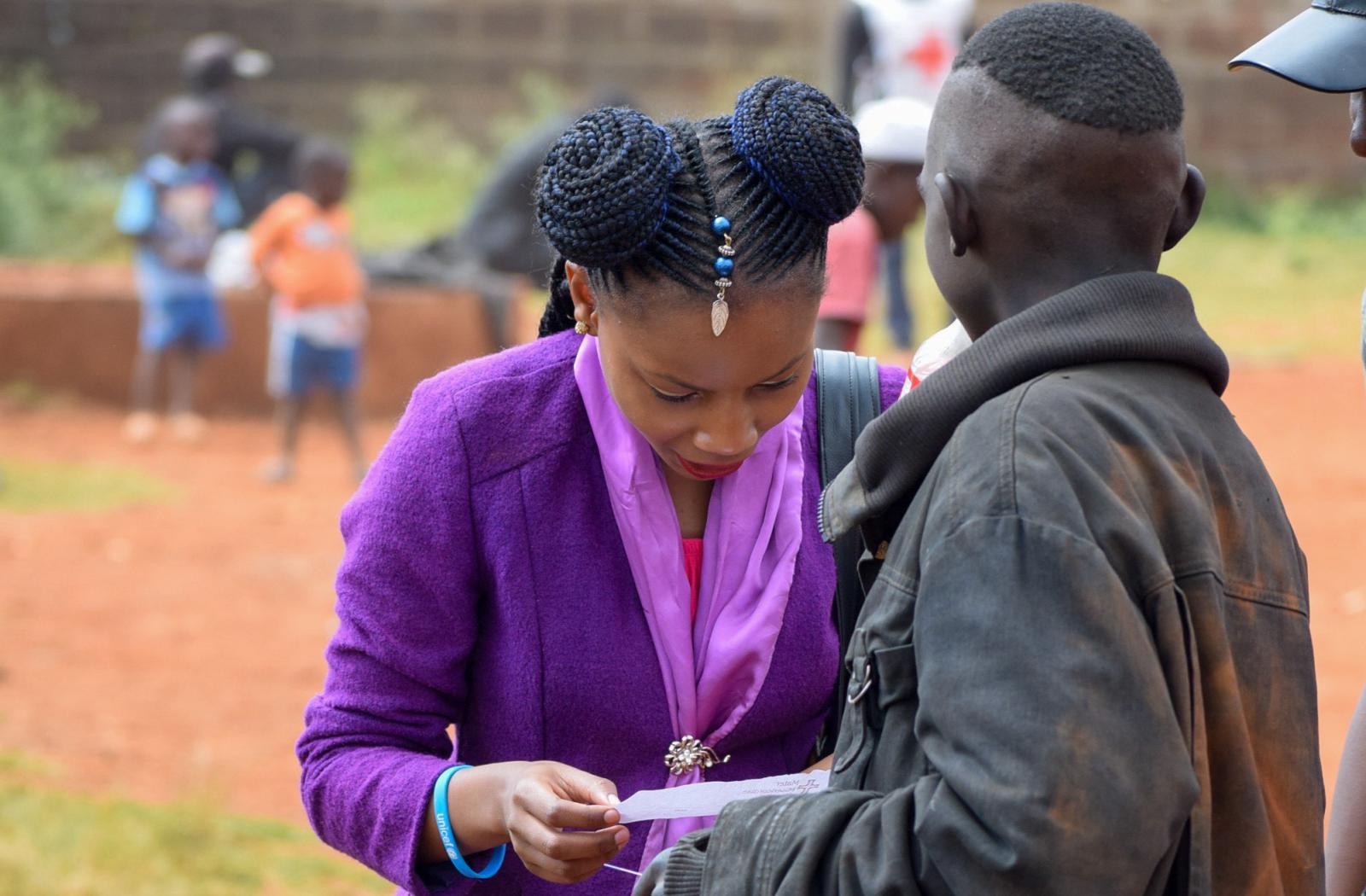
In 2015, I spoke with a Youth Fund Ambassador from my village in Bungoma County, Kenya. His work involved identifying the challenges that youth experienced and advocating for government support.
He told me how farming families, especially those growing sugarcane and maize, often waited months to be paid.
With no income, they could not afford school fees. Children dropped out, ended up on the streets, and became vulnerable to drugs, gangs, or petty crime.
When systems fail
In our , we call this “double victimisation”. It means the system fails young people first, then punishes them for how they try to survive.
That conversation with the Youth Fund Ambassador pushed me to act.
With encouragement from a mentor, who reminded me of Wangari Maathai’s advocacy for democracy, I launched a digital platform to amplify positive stories of young people making a difference in their communities.
One of those stories was of a high school girl running a branding business through her school club to generate income, an initiative that earned her a scholarship to the .
In August 2019, while working with UNICEF on a joint mission with the National Council on the Administration of Justice, I visited a juvenile institution in Kwale on Kenya’s south coast. There I met a girl who had stolen bananas because she was hungry. Instead of receiving help, she was arrested.
The 8 March Principles – which provide practical guidance for a human-rights-based application of criminal law - are clear: when there is no harm, the law is vague, or a person acts out of necessity, criminalisation is the wrong response. Her case failed that basic test.
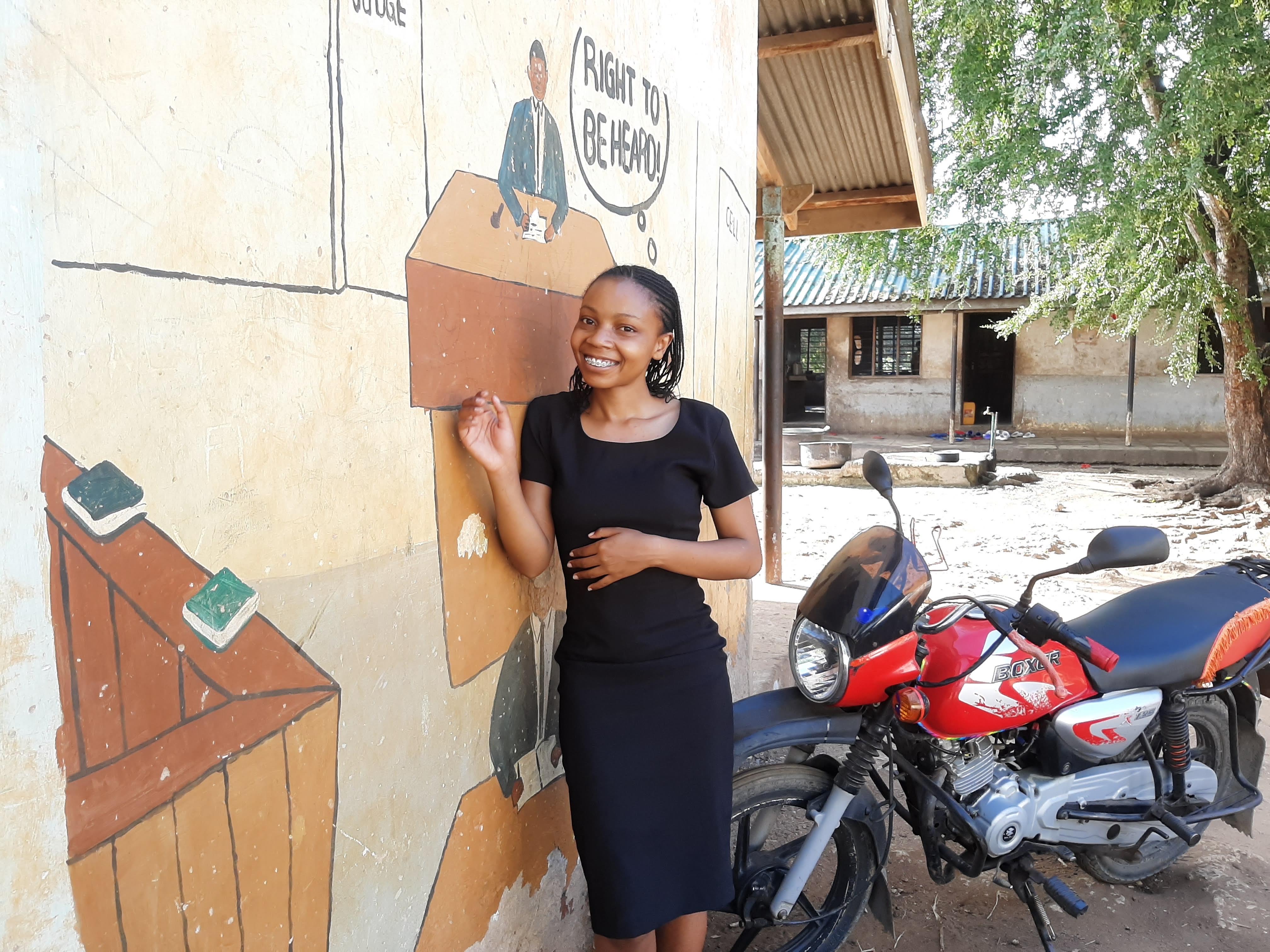
Not a Kenyan issue
This isn’t just a Kenyan issue. In Sierra Leone, for instance, loitering laws still punish people simply for existing in public while poor.
Similar laws were declared as unconstitutional in Uganda in 2022 for targeting poor or homeless people.
In the Commonwealth, young people are pushing back against such unjust legal systems.
In Nigeria, Joseph Adeyemi founder of Agrivine, partnered with the Commonwealth to host a virtual symposium and mentorship on sustainable agriculture that reached over 10,000 youth across 56 countries, providing viable alternatives to unemployment.
In India, Sitaram Nayak co-created an Innovation Lab using waste materials and eventually pursued engineering studies. He demonstrates how unlocking youth potential in rural areas can prevent marginalisation.
The Kenya Youth Policy (2019) tasks young people with responsibilities such as promoting democracy and contributing to economic development. Wawira Njiru, through , provides affordable, nutritious school meals to over 500,000 children daily, restoring children’s right to education, improving health outcomes, and creating jobs for local communities.
What needs to change?
We know what works. Replace vague offences with fair laws. Keep children in school with simple guarantees, such as meals, IDs and safe transport. Back youth enterprise with small amounts of capital and practical mentorship. And when hardship pushes a child to the edge, make support, not handcuffs, the first response.
Like Wangari Maathai, who championed environmental justice through grassroots mobilisation, today’s young people must rise as defenders of human dignity in all forms. In her spirit, let’s do the small things at scale. And If governments match the courage of their young citizens with policies shaped by their lived experience, the Commonwealth can be known not for punishing poverty, but for ending it.
Related content
Media contact
-
Snober Abbasi, Senior Communications Officer, Communications Division, ĚÇĐÄĚ˝»¨
